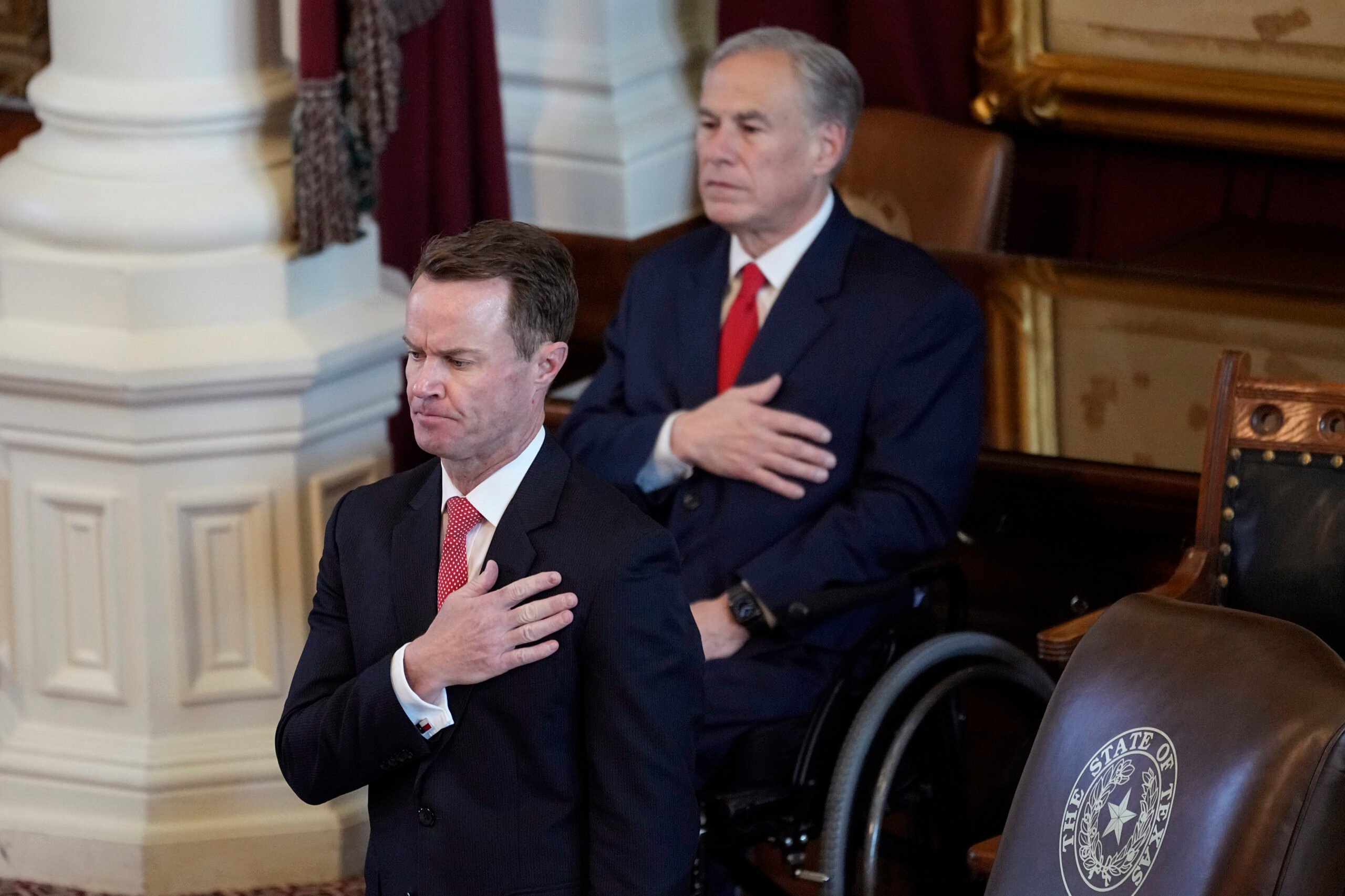
Lucio Floats School Voucher Proposal—Just Don’t Call it “Vouchers”

Sen. Dan Patrick (R-Houston) has been telling us to expect a school voucher bill since last summer. Since December, he’s been floating the idea as a “business tax credit scholarship“—letting companies divert money they’d pay in business taxes to a private school scholarship fund instead.
School groups lined up to fight the proposal. Some Republican leaders noted their distate for vouchers, too, and Paul Burka declared the scheme as good as dead. And still no voucher bill.
But Wednesday, from the Rio Grande Guardian, came word that a voucher “pilot program” could be introduced by—wait for it—Democratic state Sen. Eddie Lucio Jr. He just doesn’t want to call it “vouchers.” He told reporter Steve Taylor, at least twice, not to call it that:
The other bill would allow academically under-achieving students to leave their public school and received an education in a private school. A combination of taxpayer and private funding would help pay for their education but Lucio is keen to stress that the state funds would not come from the public education budget.
“The question is whether we are going to make a difference for those in need and those who are falling through the cracks. That is what my bills are really all about. It is not about taking away from public education funding. It is not about vouchers. It is more about helping a category of students who have fallen on hard times, who are disadvantaged economically and who need our help to make it through the system,” Lucio said.
[…]
“This will not be considered a voucher system. It will be set up in such a way that we do not use public education money. I do not want to see us being divided on this issue. It is just like feeding needy children, we do not really care where the money comes from. We just need to feed our children. It is the same thing with education.”
Lucio hasn’t filed a bill yet, but the plan as he describes it would be a lot like the business tax credits Patrick proposed last December. The Guardian explains that Lucio wants “a combination of taxpayer and private funding” for the program, which he figures would cost from $50 million to $100 million per biennium and pay for 10,000 to 20,000 students to attend private school.
“It’s still a voucher, because you’re still talking about diverting a funding stream out of [general revenue] that could have gone to funding public education,” says Monte Exter with the Association of Texas Professional Educators.
Exter notes that Lucio would go one step further than Patrick suggested last year, because his plan seems to include state spending up-front. It would take time, he says, to raise the tax credit money, so the state might have to start off paying for private tuition.
“What they’re doing is they’re creating a middle man, so instead of the state providing the money, they launder it through these tax credits,” says Texas Freedom Network spokesman Dan Quinn. “If you want to donate to send kids to a private school, you’re welcome to do that today. Getting a tax credit from the state makes it a publicly funded voucher program.”
If Lucio does introduce a tax credit program, Quinn figures he’d be the only Democrat backing it. “It’s a talking point more than it is a political advantage,” he says.
As in voucher fights past, Democrats and rural Republicans are still likely to oppose it. The vast majority of Texas’ public school districts don’t have any private schools in their boundaries that students could transfer to.
For what it’s worth, Lucio’s district has 27 private schools, according to the Texas Private School Accreditation Commission. All but three are Christian schools, and half are branches of St. Mary’s School in Brownsville.


